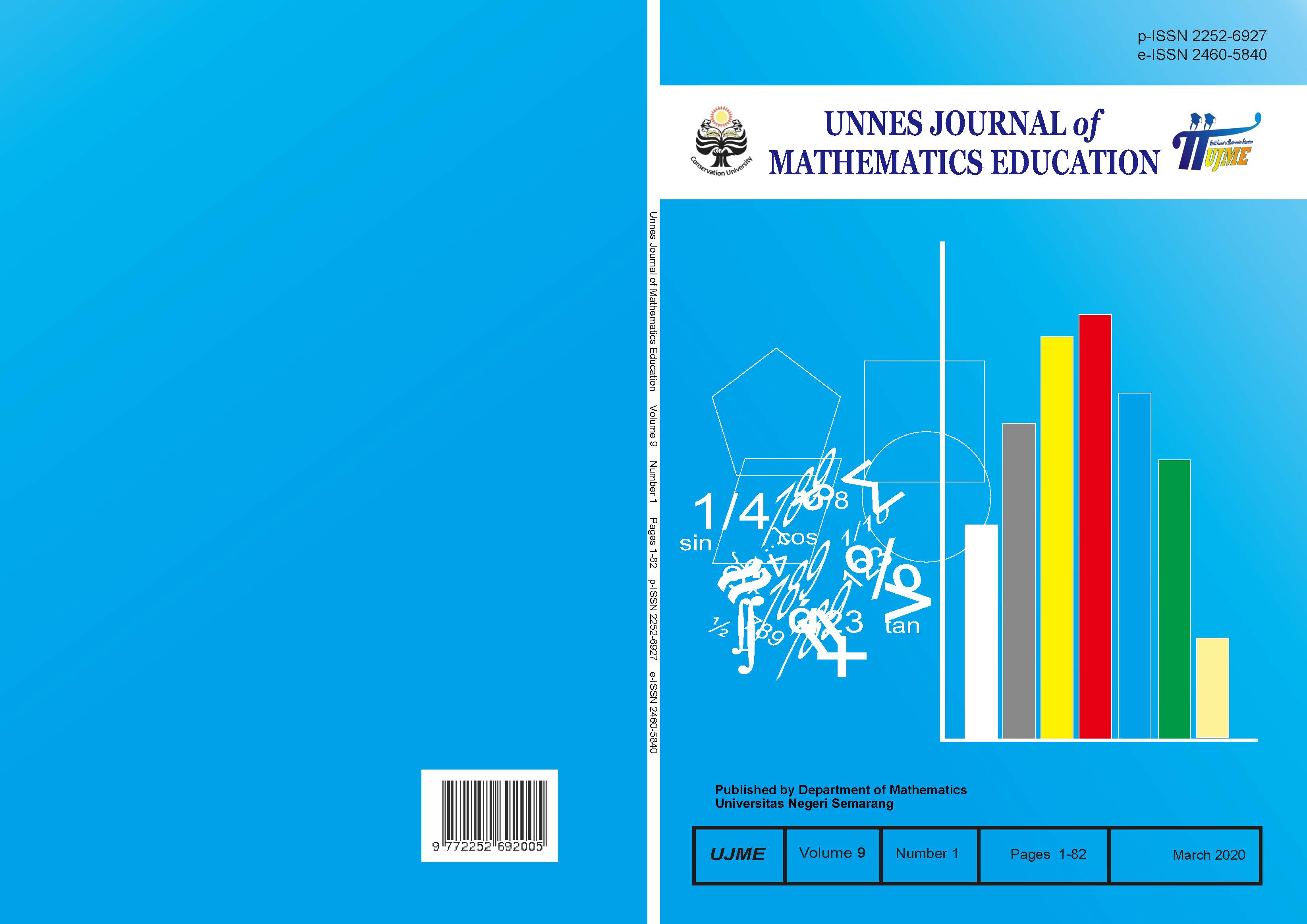The practicality of Problem Based Learning tools with a scientific approach to improve students’ critical thinking ability
##plugins.themes.academic_pro.article.main##
Abstract
The aim of this study was to obtain the practicality of Problem Based Learning (PBL) tools with a scientific approach to improve students’ critical thinking ability (KKBKM). This study was a quantitative type with research subjects of 2D class as the control class and 2F as the experimental class. Both classed consisted of 32 students in the even semester of the academic year 2018/2019. The control class was treated by using an expository learning model, while the experimental class was treated by PBL with a scientific approach. This study carried out the interview, observation, and questionnaires to collect data. Then the practicality test analysis was obtained by observation of the implementation of learning according to RPP, questionnaire for lecturers and students’ response, and observation of KKBKM activities. Afterward, the average score of learning implementation observation according to RPP was 74.2%, questionnaire of lecturers’ response was 4.17, students’ response was 86.10%, and KKBKM observation was 4.14 with an excellent predicate. Thus, the learning tool prepared positively could be used in learning.
##plugins.themes.academic_pro.article.details##
References
Dahar, R. W. (2011). Teori-teori belajar dan pembelajaran. Jakarta: Erlangga
Hamalik, O. (2001). Proses Belajar dan Mengajar. Jakarta: PT Bumi Aksara.
Kusuma, A. C. (2017). Efektifitas Pembelajaran Tutor Sebaya Berbantuan Modul Untuk Meningkatkan Komunikasi Matematik Mahasiswa. Cakrawala: Jurnal Pendidikan, 11(1), 1-8.
Lidinillah, D. A. M. (2013). Pembelajaran berbasis masalah (problem based learning). Jurnal Pendidikan Inovatif, 5(1), 17.
Maryati, I. (2018). Penerapan model pembelajaran berbasis masalah pada materi pola bilangan di kelas VII Sekolah Menengah Pertama. Mosharafa: Jurnal Pendidikan Matematika, 7(1), 63-74.
Nafiah, Y. N., & Suyanto, W. (2014). Penerapan model problem-based learning untuk meningkatkan keterampilan berpikir kritis dan hasil belajar siswa. Jurnal Pendidikan Vokasi, 4(1).
Pratiwi, D. A. (2010). Pembelajaran berbasis masalah (problem based learning) dengan metode proyek dan resitasi ditinjau dari kreativitas dan konsep diri (self concept) siswa (studi kasus materi biologi†plantae†di kelas X semester dua (Doctoral dissertation, UNS (Sebelas Maret University)).
Plomp, T. (2007). Educational Design Research: an Introduction in An Introduction to Educational Design Research. Netherland: SLO
Rochmad, R. (2012). Desain Model Pengembangan Perangkat Pembelajaran Matematika. Kreano, Jurnal Matematika Kreatif-Inovatif, 3(1), 59-72.
Rohendi, D., & Dulpaja, J. (2013). Connected Mathematics Project (CMP) model based on presentation media to the mathematical connection ability of junior high school student. Journal of education and practice, 4(4).
Syaribuddin, S., Khaldun, I., & Musri, M. (2016). Penerapan Model Pembelajaran Problem Based Learning (Pbl) Dengan Media Audio Visual Pada Materi Ikatan Kimia Terhadap Penguasaan Konsep Dan Berpikir Kritis Peserta Didik SMA Negeri 1 Panga. Jurnal Pendidikan Sains Indonesia (Indonesian Journal of Science Education), 4(2), 96-105.
Trianto, M. P. (2009). Mendesain model pembelajaran inovatif-progresif. Jakarta: Kencana.
